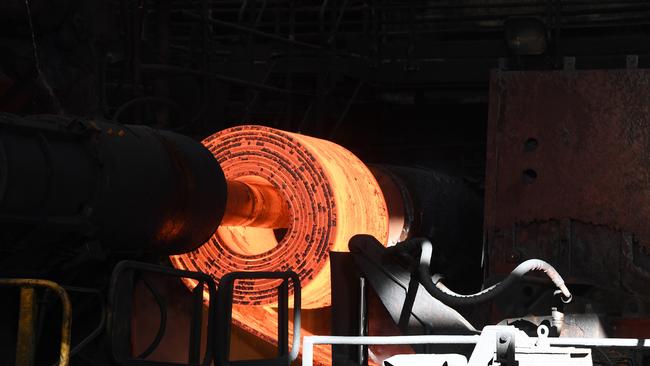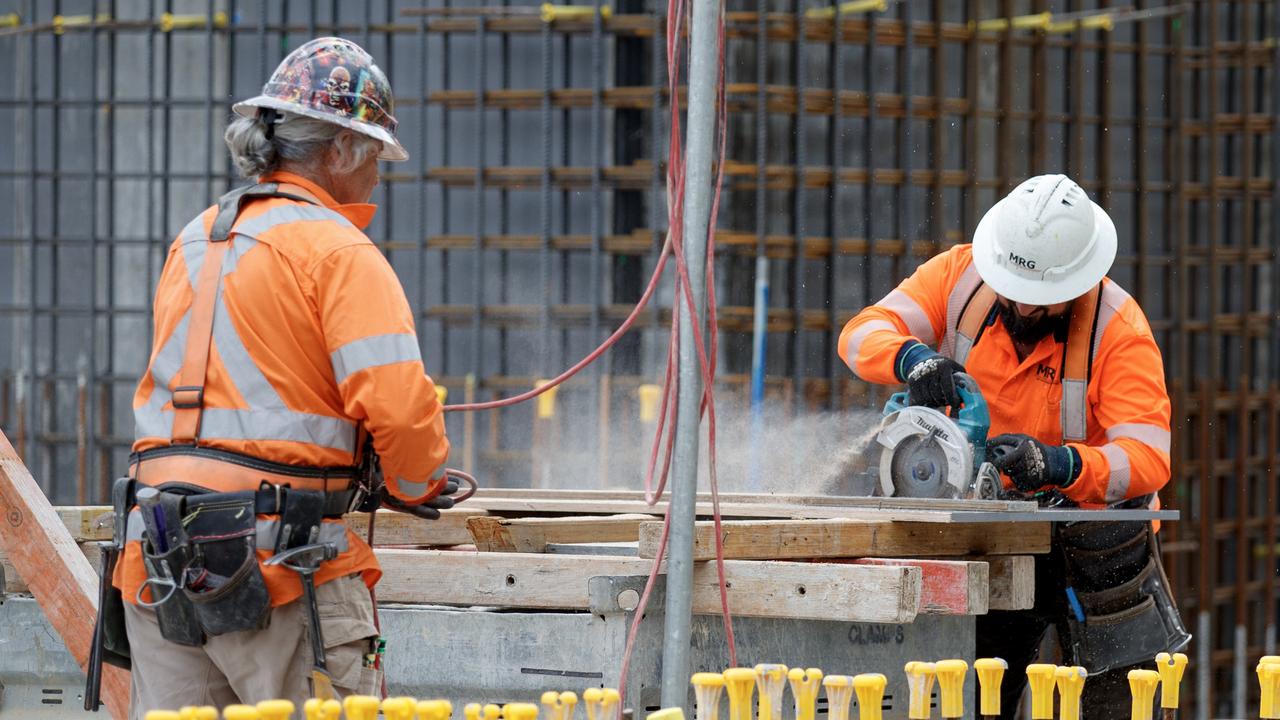Steelmaker’s ‘pitch to rivals’
In September 2013 BlueScope sales boss Jason Ellis laid out a plan to rig the Australian steel market to rivals, according to the ACCC.

In September 2013 BlueScope Steel sales boss Jason Ellis laid out the bones of a plan to rig the Australian steel market to the company’s major competitors, according to the ACCC, spending a frenzied fortnight pitching a price-fixing scheme in airport hotels and meeting rooms, Melbourne’s Crown Casino, at a major steel conference on the Gold Coast, and in a harbourside cafe in Sydney.
In late 2013 BlueScope was under enormous pressure. In August it told the market its revenue had plunged $1.3bn the previous financial year, or 14.4 per cent, weighed down by a glut of steel on international markets, with operating profits down almost 40 per cent to $161m.
BlueScope blamed falling steel prices and increased competition from imported steel.
According to the ACCC’s version of events, Ellis responded to the dire market conditions by hatching a plan to set a floor price for key steel products sold by BlueScope in the Australian market.
The essence of the plan was pitched to a secret meeting at Hilton’s Melbourne Airport Hotel on September 6 between Ellis, his national sales manager Matthew Hennessy, and the bosses of four of BlueScope’s major steel distribution competitors — Apex Steel managing director Joe Calleja, Southern Steel chair Peter Smaller, Selection Steel boss Rod Gregory and Vulcan Steel chair Peter Wells.
So secret was the meeting, according to the ACCC, that Ellis warned his colleague on the flight down from Sydney that it was not to be discussed with anyone, inside or outside BlueScope.
Ellis had already met with key executives from Selection Steel and Southern Steel, to ask what it would take for them to buy more of BlueScope’s products.
But at the Hilton Ellis laid out the bones of a plan the ACCC says was intended to fix the Australian steel market, protecting everyone’s margins at the expense of those of their customers.
Ellis told his rivals, according to the ACCC, that BlueScope had developed an “initiative” to lift everyone’s profits — by selling at a price recommended by BlueScope, each could maintain their position in the market without fear of being undercut by the others, and increase their profit margins at the same time.
In exchange BlueScope would end the use of so-called “tactical pricing” — discounts on its products to selected independent distributors — lift prices charged by its own distribution arm, and provide its price list ahead of time to any company that wanted them, as a benchmark for their own.
The pair delivered the same pitch to a suite of other competitors — including Vulcan again, along with CMC Steel and the sales director of major rival OneSteel — a few days later on the sidelines of an industry conference on the Gold Coast, run by the Australian Steel Institute.
That offer was repeated to more senior OneSteel executives on September 13, in a Qantas meeting room at Sydney airport.
By then, according to the ACCC, the operation was in full swing. On September 12 Ellis made an attempt to deal with competition from offshore steel mills.
BlueScope ended steel exports and shut one of the blast furnaces at its Port Kembla operations in October 2011, at a cost of 900 local jobs, in the face of rising raw material costs and increased competition from overseas, and cheap overseas steel was now hitting its local markets. The ACCC says Ellis tried to address that issue in a September 12 meeting with a major importer, Wright Steel, at Melbourne’s Crown Casino.
Court documents filed by the ACCC say Ellis told director Griff Wright that he had already used applications under Australia’s anti-dumping laws to lift prices in the Thai steel market, and that BlueScope needed Wright’s assistance to “put value back” into the Australian steel industry.
In exchange for Wright using BlueScope’s steel prices to set pricing for the flat steel it imported, Ellis would direct BlueScope’s New Zealand arm to charge more for steel it was selling into the Australian market — a promise Ellis delivered on in October, the ACCC says.
On September 16 Hennessy called in his pricing manager and key account managers for independent distributors, directing them to end discounting to selected distributors and encourage the companies they sold to use BlueScope’s recommended prices — set to allow them to take a 13 to 15 per cent mark-up on sales, without fear of price competition.
Within days the BlueScope price list was published, including the net price it was offering to its own subsidiaries, a recommended selling point for flat steel — whether bought from BlueScope or imported from third-party steel mills — and the profit margins they would make on both channels if they agreed to sell at BlueScope’s recommended level.
The ACCC does not accuse any of BlueScope’s rivals of acting on the information and offers made by the company, and The Australian does not suggest any of the companies colluded to fix steel prices.
After a whirlwind September, according to the regulator, Ellis briefed Australian and New Zealand operations boss Mark Vasella — now BlueScope’s managing director — on October 11 on his “mechanism to assist Australian steel distributors to increase their prices and improve profitability”.
Elsewhere in the company, BlueScope was also seeking to expand its Australian footprint by acquiring local rivals, picking up pipe and tube manufacturer Orrcon Steel and rolled form maker Fielders from Hills Australia, and buying Arrium’s OneSteel sheet and coil distribution business.
All of the acquisitions were examined by the ACCC before they closed. None were opposed.
The regulator says that Ellis took further action early in 2014 to address competition from those offshore steel mills by flying to Taiwan and India to offer the infamous “carrot and stick”.
Ellis allegedly met with representatives of Taiwanese steelmakers Shang Shing, Yieh Phui and China Steel on February 26, before flying to India and putting the same case to JSW Steel.
The ACCC does not allege the companies accepted BlueScope’s offer, and The Australian does not suggest any were involved in price fixing. Ellis and BlueScope have denied any involvement in price fixing. The allegations have yet to be tested in court.




To join the conversation, please log in. Don't have an account? Register
Join the conversation, you are commenting as Logout